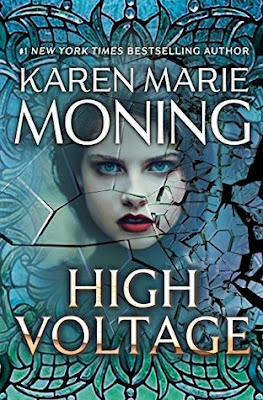
Genre: Dark Fantasy/Dystopian
Rating: 4.5/5
In Terapolis, books are banned because
they caused a plague long ago, and the Gestalt (an advanced form of virtual
reality) is what society craves. They work for all their lives to get money to
go into the nearest access point for the Gestalt. It is what they think about
and live for. Reality and memories get blurred. Terapolis, a semi-organic and
living city, has consumed a good portion of the globe already. At MorTek, they
are working on new Gestalt technology that will bring them closer to
“Completion,” but the bibliophiles of the Incunabula are working to preserve
all the literature they can in the hopes of outlasting and ultimately defeating
Silas Morlock. Caxton, an author in the Incunabula, is finishing a very
important manuscript and has become very concerned with (much to the chagrin of
his fellow Incunabulites) a young man named Adam. Caxton and Adam are being
followed by hired hands Marla and Otto. The libraries are always in danger of
being burned if discovered. Can the bibliophiles hold out against Morlock and
help society escape the darkness?
As a bibliophile, I really enjoyed this
book and the underlying messages that it presents. Books do have a drug-like
quality to them, and they are dangerous to those who crave power over the
masses. If you can get rid of free thinkers and stop the spread of ideas, you
can control the population.
I loved the character development in this
book, especially Adam’s. He struggles with being addicted to the Gestalt like
everyone else, but he has also been exposed to books. He keeps getting told
that books and the Gestalt do not mix, and he is attempting to break free from
the Gestalt, but the Incunabulites do not fully trust him, having turned down
much better candidates for their ranks. Caxton, who appears to be going mad
throughout the book, is insistent though, and much is revealed about how the
characters connect. Laura, a courier for the Incunabula and a former girlfriend
of Adam, is a great character also. I liked her more and more as the book came
to its conclusion. The author included some really fun nods to other books, TV
shows, and movies (I particularly enjoyed references to Fahrenheit 451 and the
one quip about Star Trek “red shirts.” Parts of Caxton’s manuscript are woven
into the novel in such a way that the backstory and the ultimate plot of the
story is revealed in a very natural way.
My main complaint with this book is that
there were many sections and aspects that I was not clear about. This book is
both very dark and very metaphysical/spiritual. There were a lot of concepts
that I didn’t understand fully. The Gestalt really isn’t artificial or virtual
reality--it is some sort of spiritual or energy thing. People often are
transported to other places or realms outside the Gestalt as well, but these
episodes are neither dreams nor visions. Many people hear voices. The people
who have just come out of a Gestalt access point (G-spot) walk around
glassy-eyed and in a daze. Some sections of the narration were very smooth and
easy to understand, and I felt like I finally had a grasp on things. Then there
would come a section that was very confusing, with lots of terms I didn’t
understand. I trudged through it though, and I am glad I did. In general,
everything is just very vague and blurry – part of that I am sure is
intentional (the citizens of Terapolis come across as confused themselves) but
part of it is that I had a really hard time visualizing the city itself. It is
some sort of chitinous organic material, but I wasn’t clear on exactly what
that meant. Terapolis has multiple layers and levels, tunnels and sections. It
gives the impression that the city is one big organism that is, in fact,
feeding off the people. It’s like a nightmare that the people are stuck in.
I also do wonder how books could ever be
truly banned. I can understand that people might slowly lose the ability or the
desire to read, but as it was stated in the book at least once, you have to
have writing on signs and manuals. It really does seem necessary that some sort
of written communication exists. I was not clear on whether or not there
actually was a plague that was spread by the books. It seems that this was just
a convenient lie to get rid of them, but no one ever says that explicitly, so I
am not sure.
Overall, reading this book was a very
pleasant experience. The editing was good, and it kept my interest throughout.
The characters were believable, and the content is very imaginative. Although I
wish some of the concepts were a little clearer, I can appreciate the book for
what it is. I would recommend this book to anyone who loves books and believes
in the power they hold to keep society FREE.


